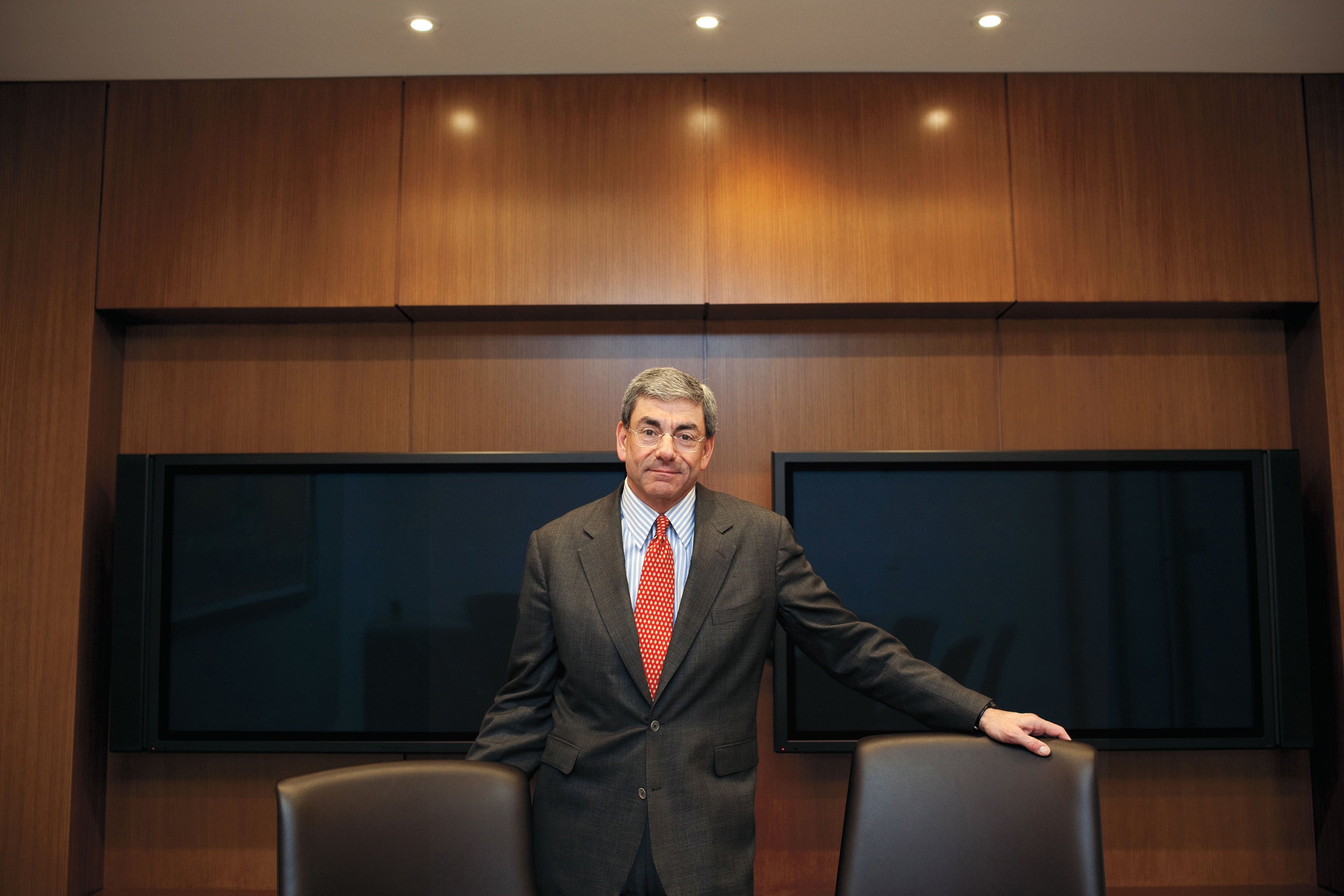Robert J. Katz ’72 is the new chairman of the Dean’s Advisory Board. Katz is a senior director at Goldman, Sachs & Co., for which he served as general counsel from 1988 through 2000. Prior to joining Goldman Sachs, he was a partner at Sullivan & Cromwell in New York City. Katz is a 1969 graduate of Cornell University and is vice chair of its board. At HLS, he won the Sears Prize and was president of the Harvard Defenders, providing pro bono legal services to low-income clients charged with crimes. After HLS, he received a Knox Fellowship and attended the London School of Economics before serving as a law clerk to the late Irving R. Kaufman, chief judge of the U.S. Court of Appeals for the 2nd Circuit.
What does the chairmanship of the Dean’s Advisory Board mean to you personally?
I’m having fun. I can think back to my arrival at Harvard Law School in the fall of 1969, soon to be 42 years ago. What it means to me is an awfully long and close and affectionate relationship with the law school. This is a significant step, obviously, for me along that path, which causes me to look back with some wonderment when I think of how little I knew or understood and how inadequate I felt when I arrived. So this is a continuation of a journey that is extremely meaningful to me at a personal level. On top of that, I have a great fondness and regard for both this dean and her predecessor, and for all members of the board past and present that I’ve had the privilege to serve with, and especially for Finn Caspersen [’66], a great leader for the school, a giant, and one whose shoes I am humbled to try to fill and doubt I can quite fill.
What challenges do you see facing legal education today?
All elements of higher education in the U.S., for sure, and presumably worldwide, face a major challenge in terms of access. The costs and the value proposition for meeting those costs—whether funded by student or family resources, by financial aid provided by philanthropy or public sources, or in the case of state institutions, by legislative appropriations, or all of the above—have as much to do with the individual interests in preserving access to something inherently and economically worthwhile as with societal interests in the propagation of knowledge, the development of leaders and the delivery of service to the community. I think the necessity of protecting and preserving access to the academy is a challenge that most appropriately falls to the alumni, and that alumni ought to take the greatest ownership of.
What’s the biggest difference you see between HLS now and when you were a student?
It’s a visibly different student body than in the Vietnam War era. Because of people serving in the military or alternative routes they took in lieu of service, many were coming from other paths of endeavor that had neither a view toward nor were particularly relevant to their subsequent entry into the law school. Secondly, the class [today] has much more gender balance and is much more racially balanced. Having said all that, notwithstanding the new buildings and faculty turnover and changes in the curriculum and first-year sections being a different size, I think the fundamental drivers, ingredients and outputs of the Harvard Law School experience haven’t changed. And I see this, in part, because I’m also somewhat in touch with the younger generation, having had a son [James Katz] graduate in 2009 from the law school and the Kennedy School, and continuing to interact with young practitioners at the two firms where I have worked, and elsewhere. You see very similar degrees of intellectual curiosity, energy, personal aspiration, purpose-filled effort and lives, analytical approaches and critical thinking.
You’ve been very generous to HLS and to Cornell. What is your philosophy about giving back to the law school?
I like to use a quote from former Dean Bob Clark [’72], at a lunch I once attended, when he said, “I just want to ask three questions: First, did attending Harvard Law School make a substantial and probably unique difference in your life? Second, do you acknowledge that was only possible because Harvard Law School was here through the efforts and generosity of people who came before you? And if you accept the first two, do you acknowledge your obligation to do the same for the next generation?” That’s my syllogism, at the very personal level. I don’t believe there is an obligation to philanthropy, but it’s why an individual should want to do this.
Any summary thoughts?
I would add that Martha Minow and I do have a lot of fun together and laugh a lot. I hope to continue doing that, and even more so. When I said I was having fun, I meant it.
